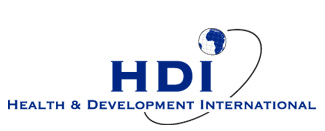Major Support Provided By
Introducing an additional approach!
HDI is once again a catalyst at the global level, now to start rapid prevention of obstetric fistula. HDI is introducing tools it has seen and used since its inception, as a new approach to this major women’s rights, dignity, and health issue.
HDI’s Rapid Maternal Mortality and Obstetric Fistula Prevention Program became operational in 2008, to supplement what others are doing, aiming to spend modest additional amounts and facilitate much faster results. Before that, UNFPA, CDC, and HDI got international reproductive health policy agreement in 2005 on using HDI’s community-based approaches to prevent obstetric fistula. The report is available if you click on it in the Resources section of this website.
Then Niger successfully demonstrated that maternal deaths can be rapidly prevented in a large population across a large, remote area, that the health system can be strengthened, and that obstetric fistulas can be prevented using HDI’s Rapid Fistula Prevention approach. The fistula prevention program currently serves more than 300 000 people in areas 170 sq miles bigger than the American states of Rhode Island and Delaware combined.
As of February 2018, only a single program-preventable case of obstetric fistula has occurred during 126 000 births in a setting where WHO predicts there would normally be 1 – 2 new obstetric fistulas per thousand births.
Maternal mortality is also down. More than 133 000 women have given birth since the most recent maternal death caused by blocked childbirth in May 2008. And all-cause birth-related maternal mortality has been reduced to levels seen in Latin America and parts of the Caribbean.
Two Next Steps
- Expand the project in Niger
Because there are no signs the international community is ready to begin using the community-based approach that has been so successful in Niger, Izumi Foundation has kindly given us funding to let Niger try an even much less costly approach in really large populations (4 million) over really large areas, a region covering areas the size of South Korea, though much of it is desert so most people live in the southern part. Ultimately, we would like to see obstetric fistula eliminated and maternal deaths reduced significantly across Niger and across Africa. - Introduce rapid obstetric fistula prevention as large-scale pilot projects in one or more additional countries, ideally combined with Rapid Prevention of Bleeding Deaths as described in the PPH section of the website.
Rapid maternal mortality and prevent obstetric fistula prevention costs about $1/person for a rigorously monitored program in large, remote, difficult-to reach areas.
Our ongoing test of an alternative, even much less costly approach is being done with a budget of about $0.02 USD/person in the population per year. Though we are hopeful, as this is being written in April 2018 it is much too early to have any idea of whether it will work, let alone work as well as the full-fledged community-based approach with village volunteers and all.
We estimate that catalyst aspects in more densely populated parts of rural Africa can cost $5 million/year for a multi-country program, well within reach for a consortium of bilateral donors and foundations. See more here.
HDI is the only group dedicated to rapid PREVENTION of obstetric fistula.
Information from some who strive to provide treatment is available here.
For more information about Obstetric Fistula check out Resources.
Updated April 2018
